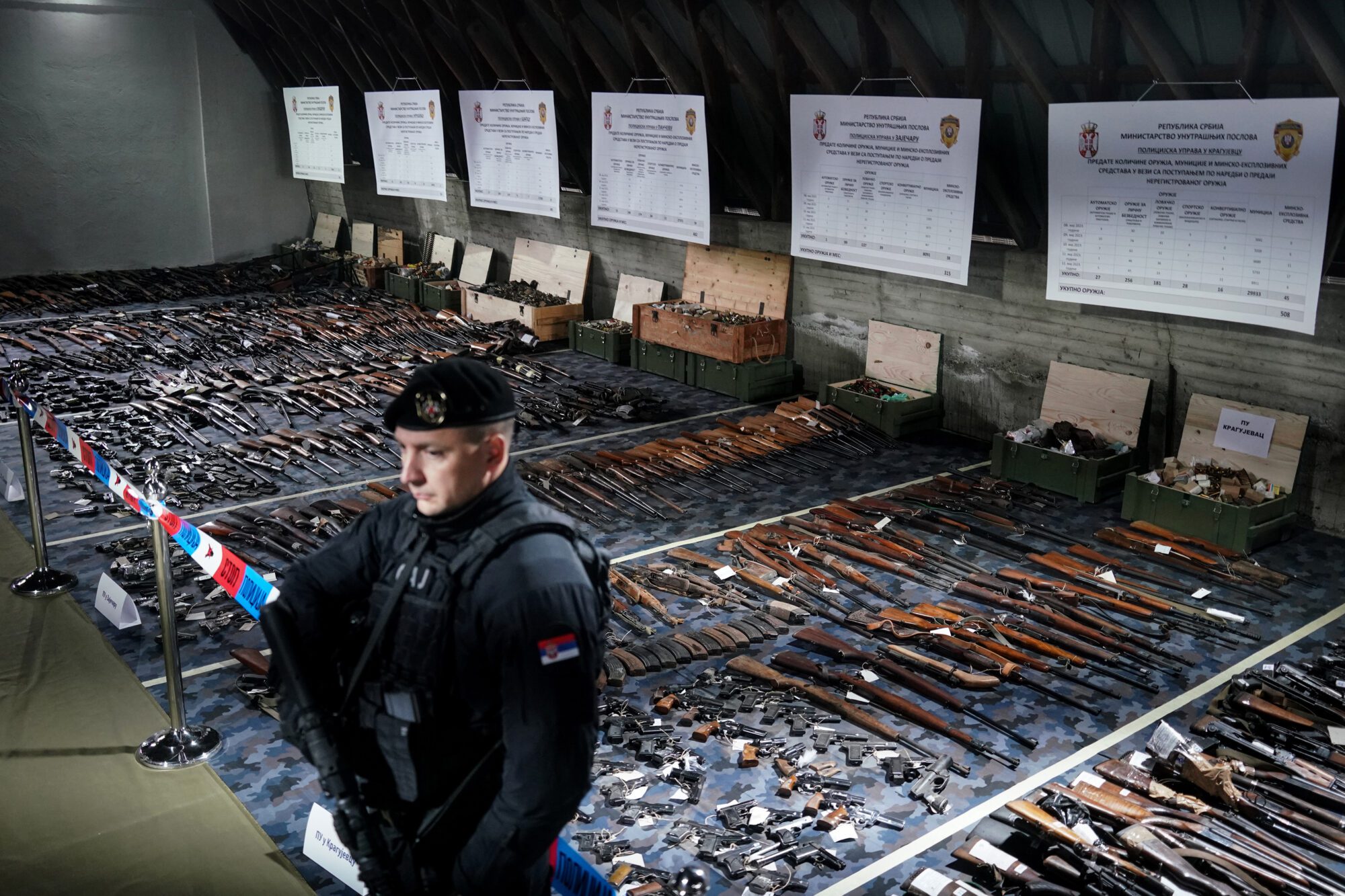
Serbian President Aleksandr Vučić visits a weapon drop-off point in Smederevo, halfway through the month-long amnesty for surrendering illegal firearms.
AFP
A third election in four years could be held in Serbia in a few months, Serbian President Aleksandr Vučić announced at a press conference on Sunday, May 14th, after massive protests sparked by two recent mass shootings called for his resignation.
Although Vučić announced to step down as the leader of the ruling Serbian Progressive Party (SNS), he told reporters that he has no intention to resign as the president of the country, despite the calls from the protestors.
“There will be no Maidan in Belgrade,” Vučić said, referring to the 2013-2014 wave of protests in Kyiv that ousted pro-Russian Ukrainian president Viktor Yanukovych.
As we reported, after two separate incidents of mass shootings in less than 48 hours shocked the nation two weeks ago, leaving 17 dead and 21 injured, President Vučić vowed to disarm the gun-packed country, promising a moratorium on gun permits (except on hunting rifles) and announced a one-month amnesty for Serbs to hand in their illegally-obtained weapons or face prison after it ends.
In Serbia—which is ranked third in civilian gun ownership globally with nearly 40 guns per 100 people, a bitter legacy of the Yugoslav wars from the ‘90s—officials say that only around 6% of the population hold firearm licenses, meaning the vast majority have been illegally holding on to these family heirlooms all these years.
To demonstrate the success of the amnesty, President Vučić also appeared visiting one of the drop-off points on Sunday, where—standing in front of hundreds of surrendered firearms—he told reporters that over 13,500 weapons had been collected so far, half of them illegal in the country (and the other half lacking permits), including grenades and even rocket launchers.
Nonetheless, while the idea of the amnesty enjoys widespread support, it did little to calm the public’s anger after the devastating attacks. A movement calling itself “Serbia Against Violence” managed to get tens of thousands on the street to demand the resignation of the president, the prime minister, the entire government, as well as a crackdown on violent content in television and other media.
The protesters even blocked several key chokepoints in Belgrade, including a bridge and a highway, during Sunday’s demonstrations, which President Vučić called “harassment.”
To alleviate the tensions, Vučić then promised that the possibility of snap elections during the next few months is being seriously considered and could be soon scheduled, but “the vote would be held no later than September.”
Also, after announcing his resignation from the SNS leadership, he told his voters that he would later explain the decision at the party’s upcoming Belgrade rally on May 26th, said to be the “biggest ever,” according to media reports.
